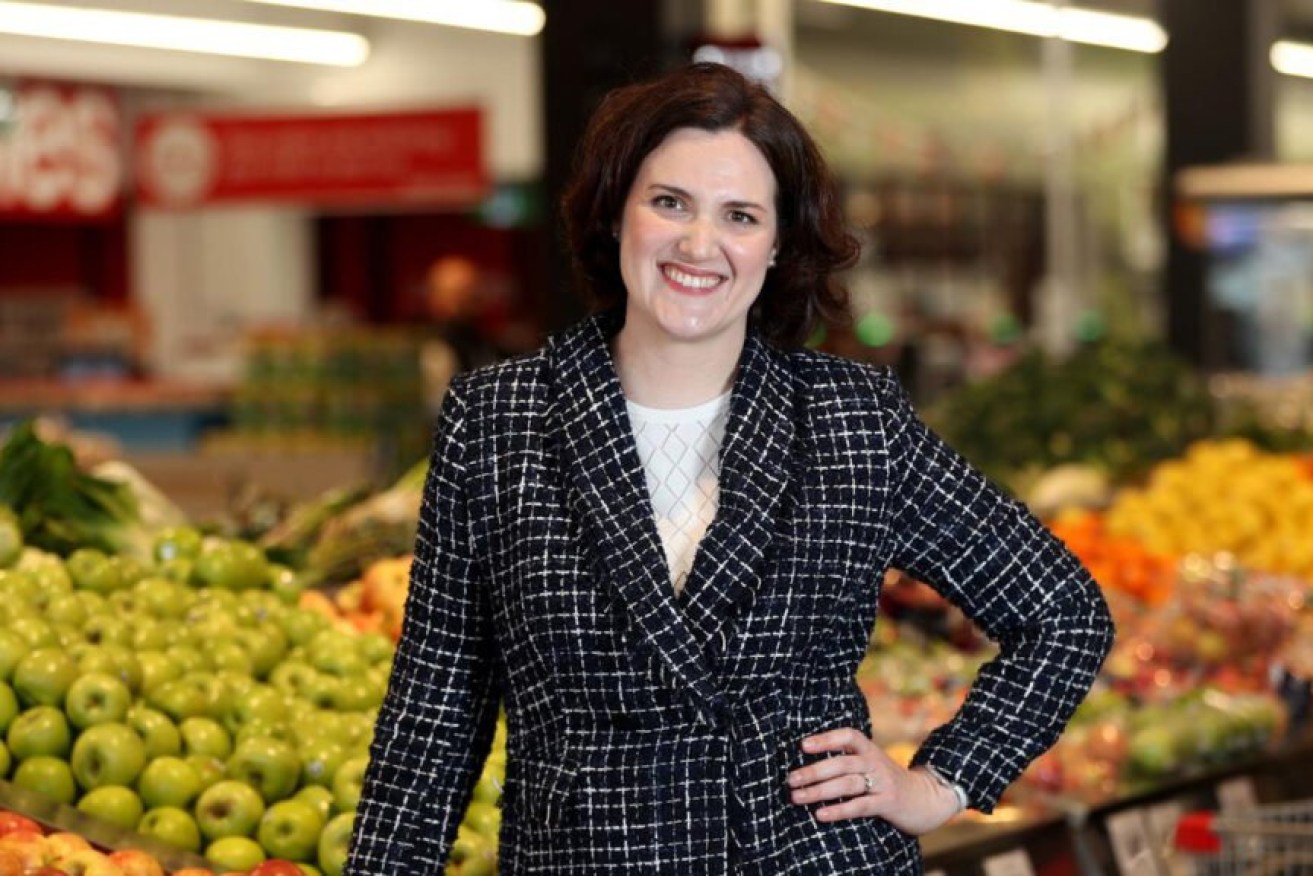Top executives in the firing line as Coles, Woolworths face Senate probe
Coles and Woolworths will be in the firing line as executives from Australia’s two big supermarkets face long interrogations over high grocery prices.

Incoming Coles chief executive Leah Weckert.
Alongside Optus and Qantas, the two supermarket behemoths are among the country’s most criticised companies after raking in billion-dollar profits during a cost-of-living crisis.
Their dominance – Coles and Woolworths account for an estimated two-thirds of the market – has drawn scrutiny from customers, farmers and other suppliers and politicians across the spectrum.
Coles chief executive officer Leah Weckert and Woolworths CEO Brad Banducci are expected to face intense questioning when they appear before the Senate inquiry in Canberra on Tuesday.
For Mr Banducci, it could be one of his last major public appearances in this role after he announced his resignation in February following a trainwreck interview with ABC’s Four Corners, where he struggled to answer questions about Woolworths’ market share.
In their submissions, Woolworths and Coles claim the supermarket landscape is competitive and has only grown more so after the entry of global retailers such as Aldi, Costco and Amazon.
But the Australian Food and Grocery Council says the big two have only offered competitive prices by squeezing farmers and other suppliers.
Woolworths blamed multinational consumer goods suppliers for pushing up prices, saying they are “not obliged to provide cost information to justify their increased prices” which limits the supermarkets’ ability to argue with cost increase requests.
“Australians are right to demand a grocery sector which both delivers compelling consumer value every day and ensures a sustainable, innovative and competitive industry,” Woolworths’ submission reads.
“The empirical evidence demonstrates that Australian consumers enjoy high levels of supermarket competition and choice.”
Coles points the finger at operational and business cost increases alongside price rises from suppliers and farmers.
Energy, labour, logistics and packaging costs have grown, resulting in a $1.4 billion increase in Coles annual operating costs between the 2019 and 2023 financial year.
There was also a $600 million increase in annual employee costs during this period, driven in part by growing wages.
Coles said the invasion of Ukraine, natural disasters, the COVID-19 pandemic and other inflationary events were also pushing up prices for the supermarket operator as well as suppliers.
The key driver of checkout prices have been price increase requests from supplier and farmers, which Coles says doubled in the 2022 and 2023 financial year, compared to the 2021 financial year.
“Our suppliers are subject to the same cost pressures experienced across households, as well as domestic and global economies, and we work with them to adjust to challenges and help them grow and prosper,” Coles’ submission read.












